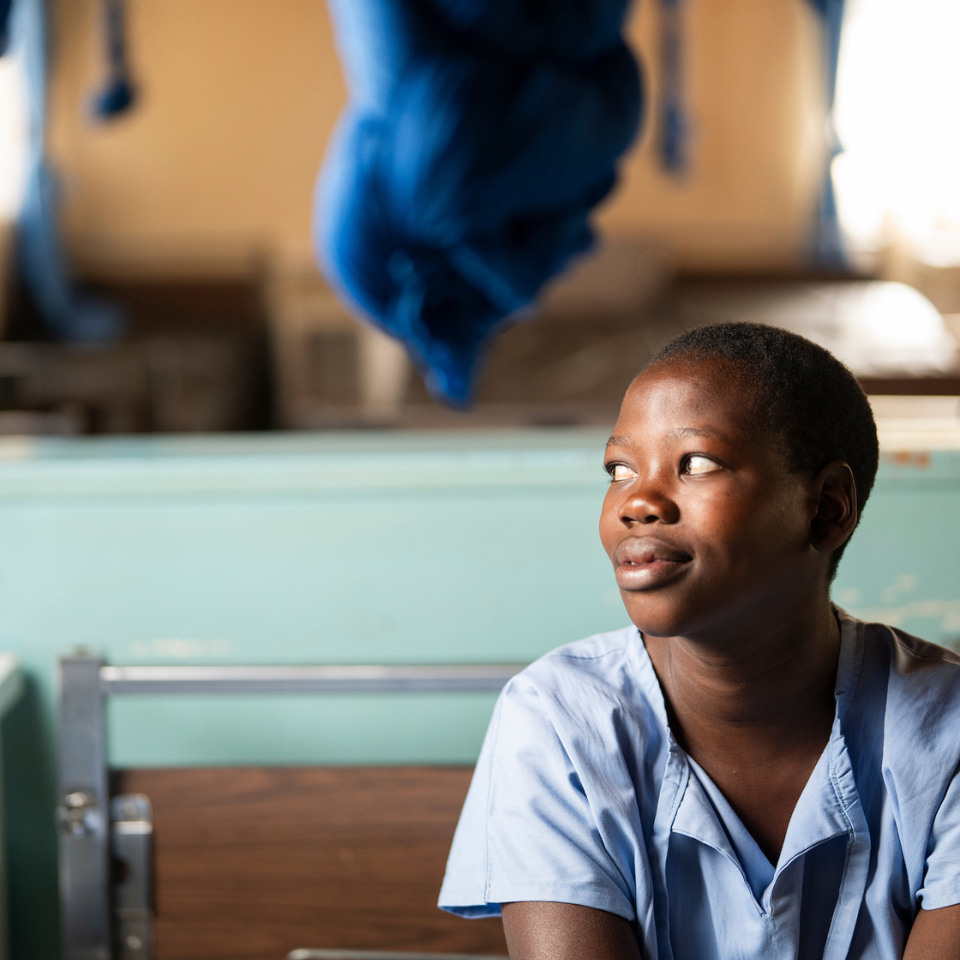Nabiritha's Story
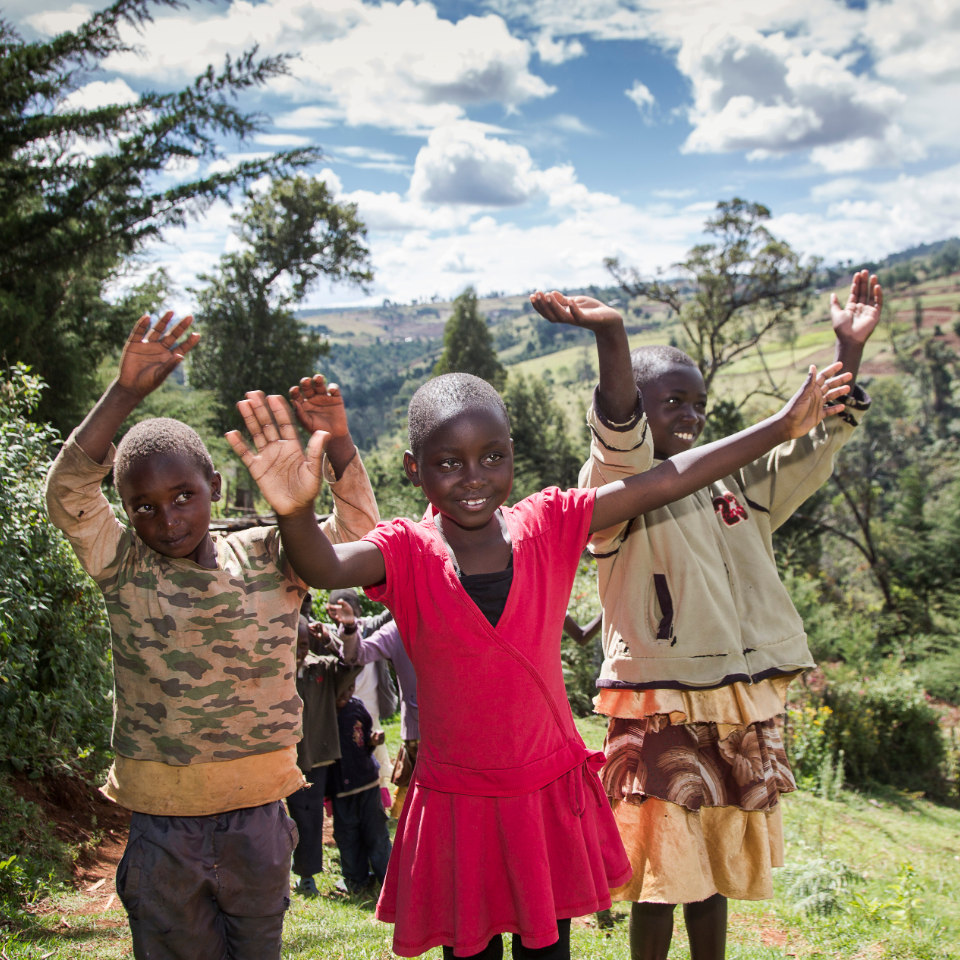
Seven years is a long time to wait
But in Kenya, for every one person who receives cataract surgery, there are 10 others who cannot.
One of those people was Nabiritha, a seven year old girl born with cataract blindness. She used to sit outside her house, singing along to solemn gospel tunes from a small transistor radio. When she heard her friends and siblings playing nearby, Nabiritha would tentatively stretch her hands out and feel the mud walls of her family’s small home, trying to navigate her way towards the sound of laughter.
Her mother Emily knew that something was wrong with her daughter’s eyes when she was just four months old.
"I'd put some toys down for her to play with...and I would find them the way I left them."
- Emily, Nabiritha's mother
They couldn't access help
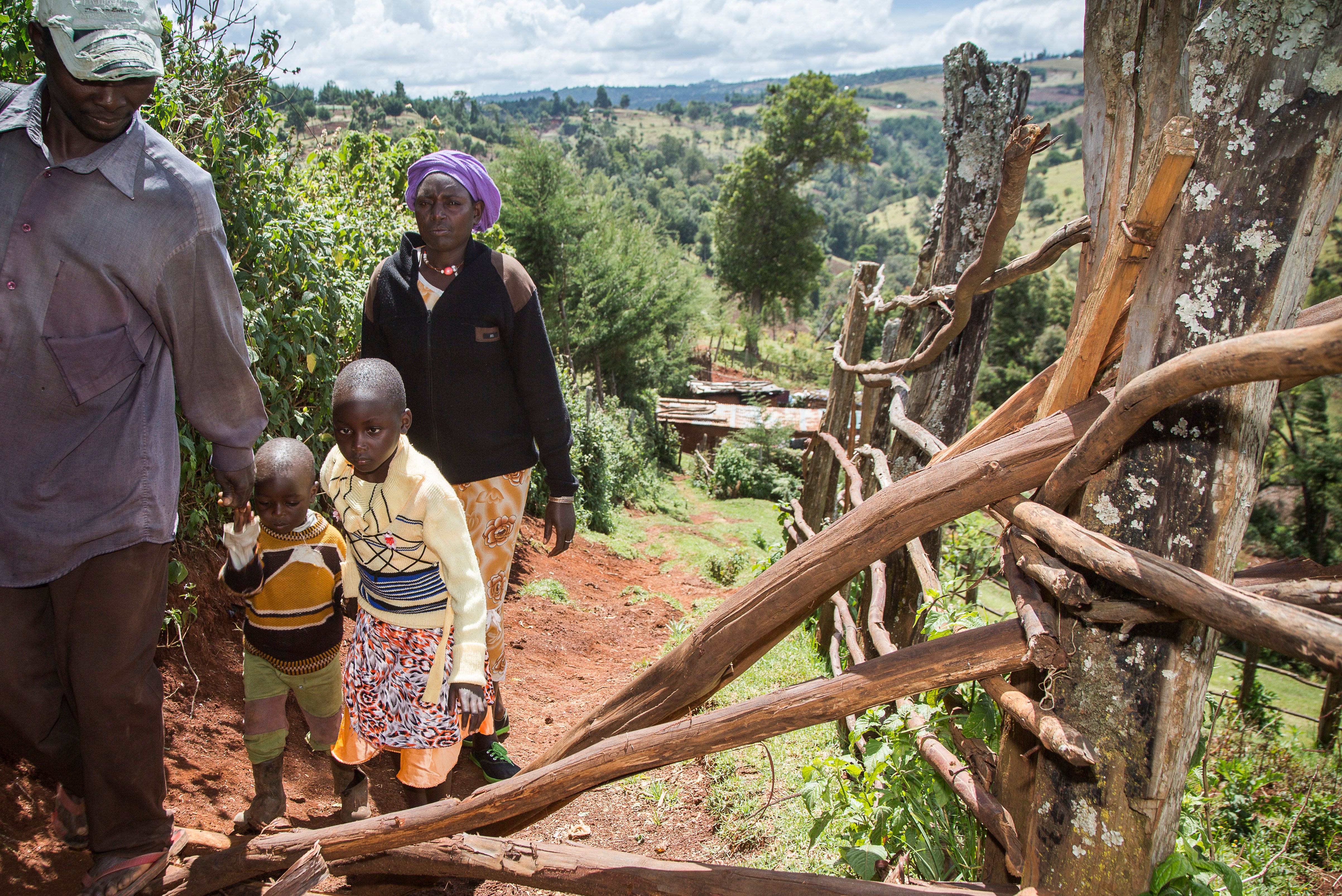
Nabiritha’s condition was completely avoidable, but the cost of cataract surgery was out of reach for Emily and her husband. They earn just $2 a day as farm labourers. And on top of that, accessing help is no easy task when there’s only eight paediatric ophthalmologists for the entire Kenyan population of 40 million.
For several years, Emily would travel to hospitals seeking help, but to no avail. “I was told doctors would be coming but when I got there they said I would have to wait for another time.”
Eventually, Emily found out that Nabiritha’s only chance of being able to see was to have surgery at a hospital more than 200km away.
"I didn't know what to do. I knew that getting that kind of money to travel would be very difficult for us..."
- Emily, Nabiritha's mother
Later is too late
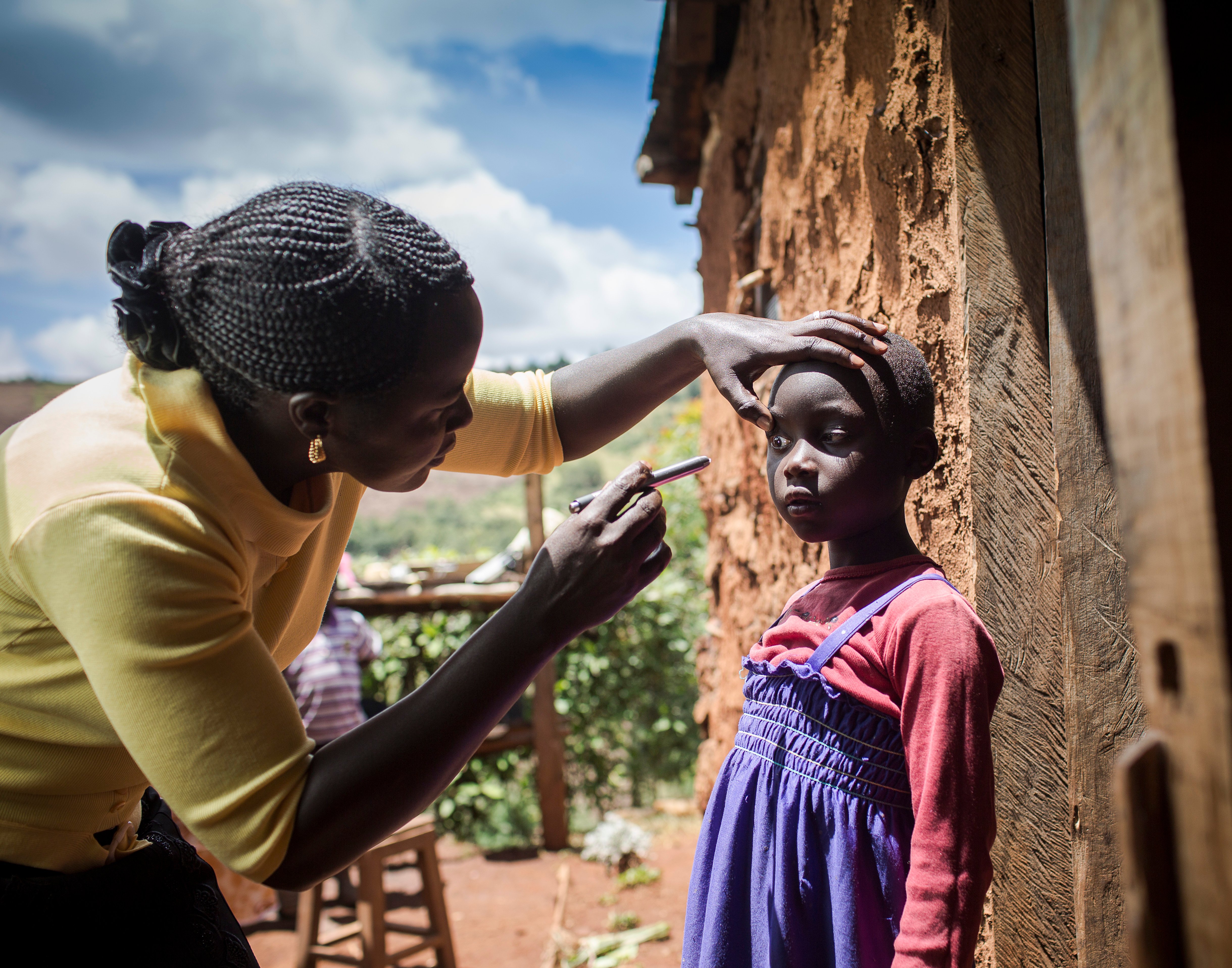
The local health centre knew about Nabiritha’s condition and one day Emily received a call with news that The Fred Hollows Foundation could support Nabiritha’s surgery.
The Foundation drove Nabiritha and Emily to Sabatia Hospital north of Kisumu in western Kenya where Dr Sarah Sitati and her team removed Nabiritha’s cataracts in just under an hour.
Dr Sitati is one the few paediatric ophthalmologists in Kenya and laments about how tragic it is when children like Nabiritha can’t access eye services. That’s because childhood blindness is more complicated than adult blindness. Surgery must be performed before permanent damage is done to pathways in the brain.
“The earlier we treat them, the better the outcome, but many children in remote communities have delayed treatment because they are not aware of or cannot afford surgery,” Dr Sitati said.
She never thought this day would come
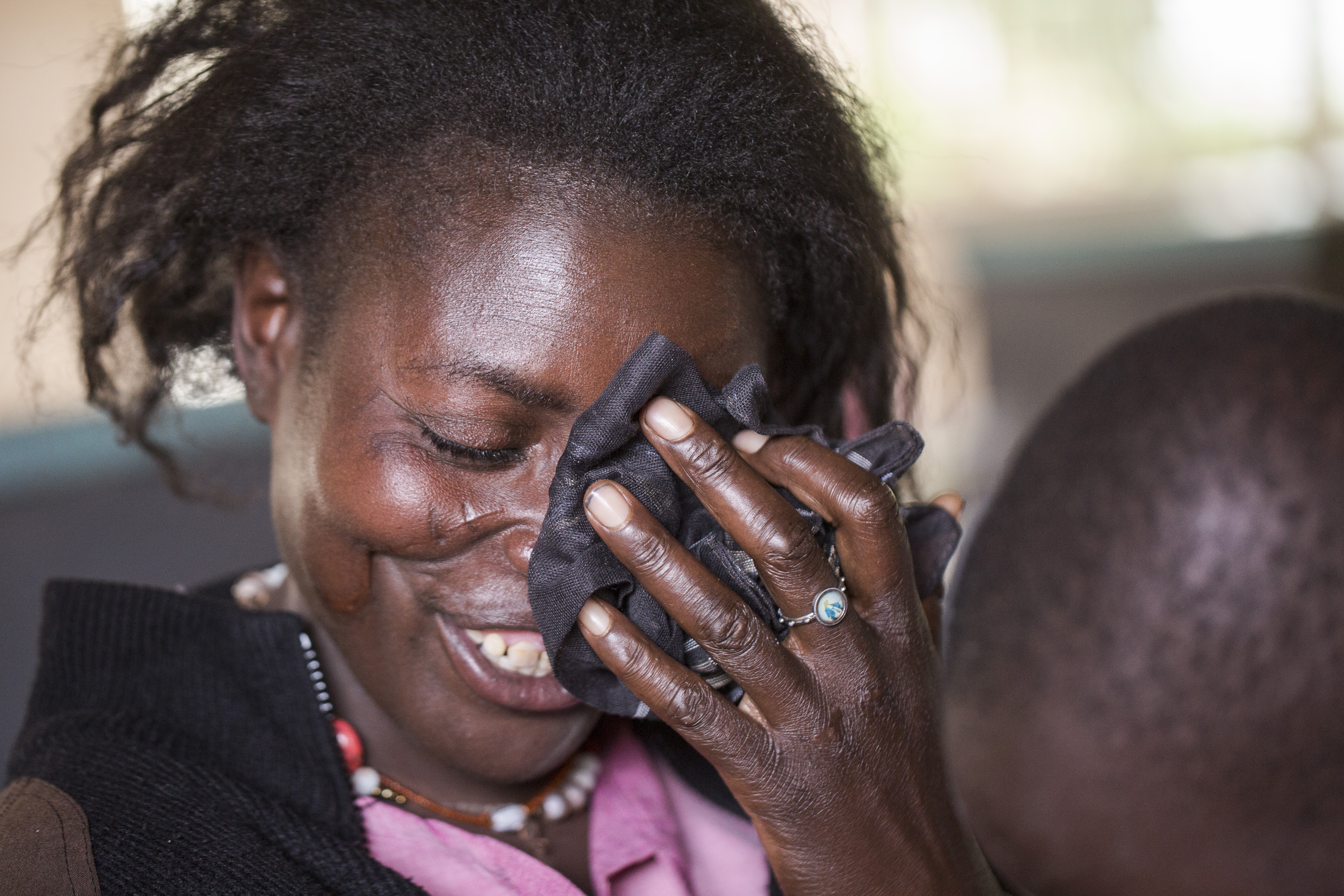
"I feel like the doctor gave me new eyes and now I know I'm going to see."
- Nabiritha, cataract surgery recipient
Emily dissolved in to tears when her daughter blinked uncertainly and started to focus her eyes. “Imagine for all those years my child has never known what I look like. I never thought this day would come,” she said.
A moment like no other
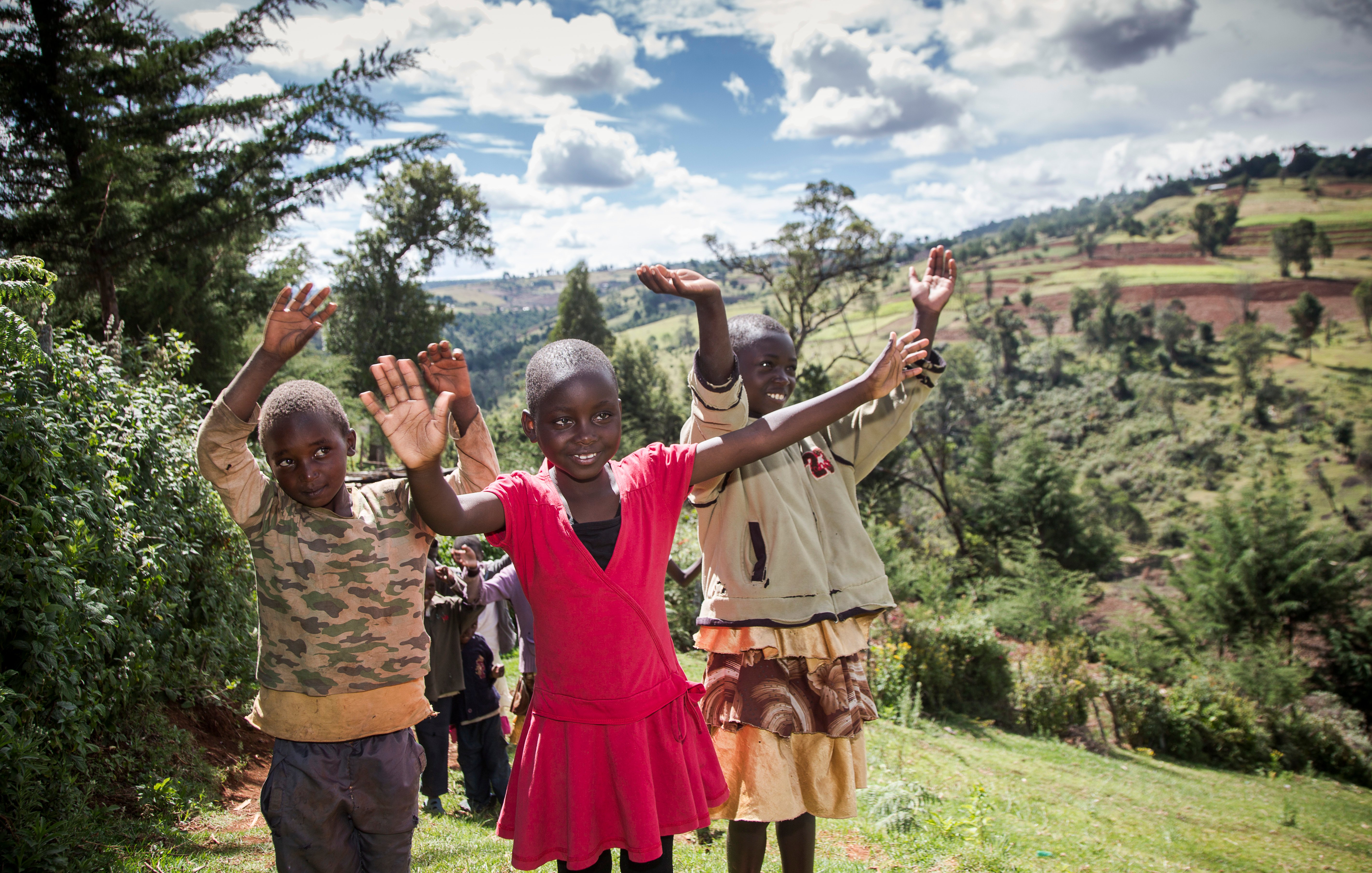
The next day, Nabiritha arrived home. The moment she embraced her father and mother and saw her siblings was electric. When she walked – by herself - over the hill towards her village, some neighbours came out and cheered the little girl who could suddenly see.
It took seven years for this moment to happen for Nabiritha and her family. That’s seven years of anguish coupled with a mother’s determination. We were able to help her before irreversible damage took hold - and one day perhaps every avoidably blind child in Kenya will see the same future.
Related articles
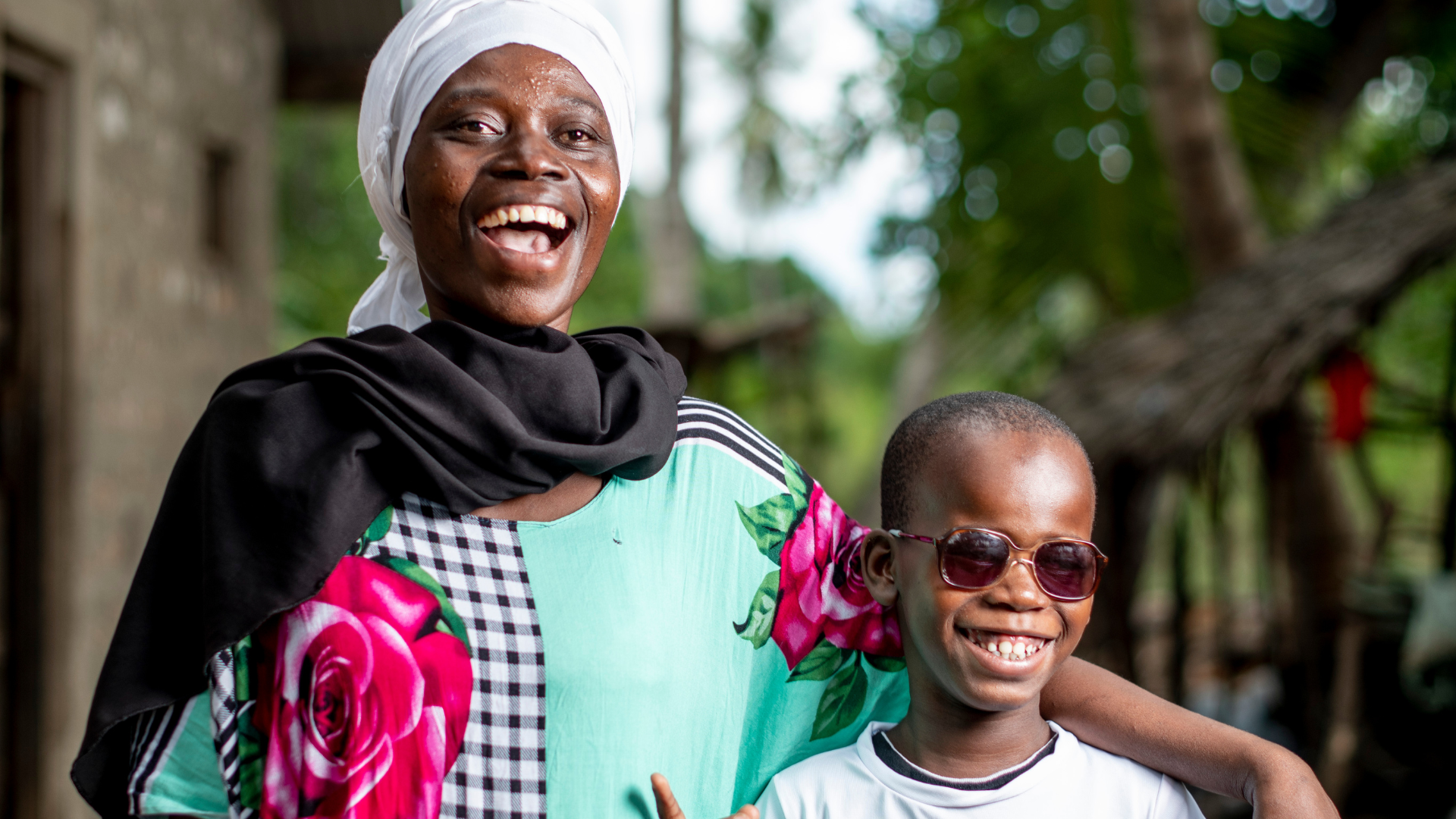
Mbaruku's Story
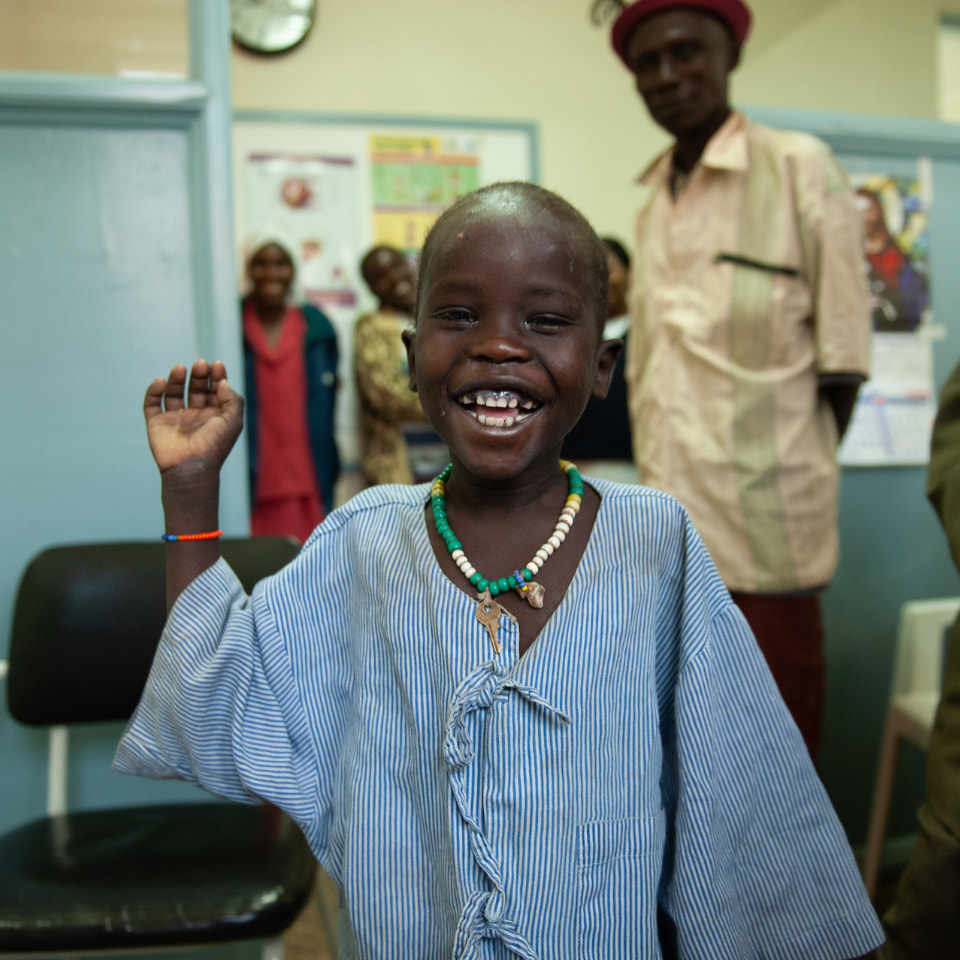
Kipar's Story
